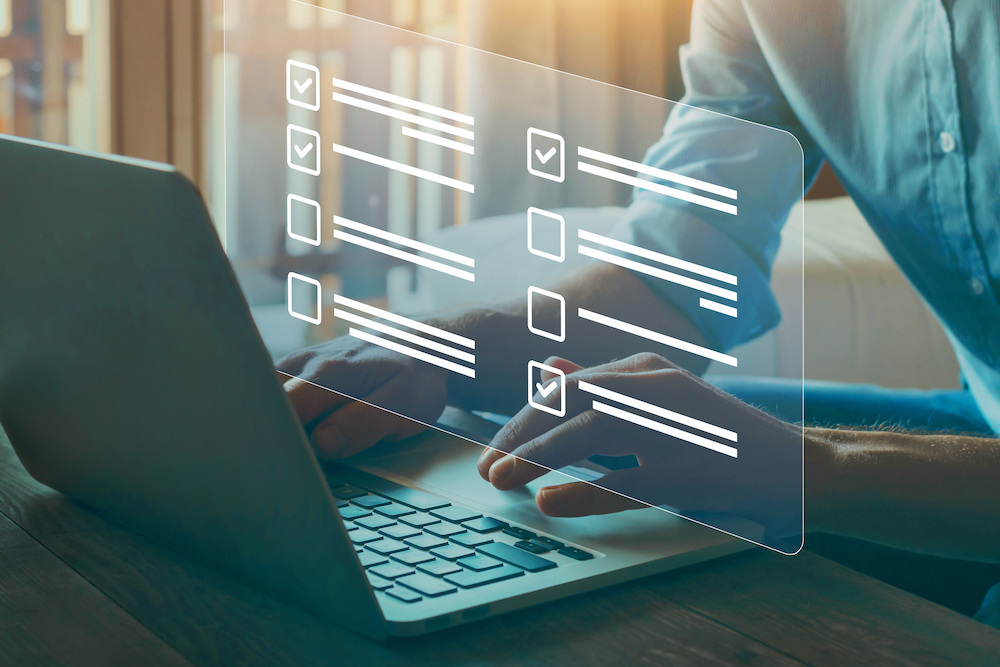Align with College/School or Departmental Leadership
- Individual colleges, schools, or departments may issue guidelines about their expectations for classes.
- As you plan, instructors should connect with department leadership on any specific considerations for your sections or courses.
Get Your Course Ready for Digital Delivery
- Georgia Tech’s Center for Teaching and Learning (CTL) maintains resources for leveraging various technologies and strategies to facilitate engaging learning activities inside and outside of classes.
- BEFORE EACH TERM: One way to prepare for any disruption to in-person learning is by proactively using Canvas. You can do this is by building your course using the Canvas Course Template, a product developed by CTL, OIT, GTPE, and C21U, that allows you to import a Georgia-Tech branded module structure to meet your course needs.
Address Emergencies Proactively in Your Syllabus
- Each semester, provide details in your syllabus about how your class will work in the event of a digital learning day, including how exams will be managed.
- Let them know what to expect, including what communication method you will use and how best to contact you (email, virtual office hours, Canvas, etc.) and what tools they will use to access the lecture, course material, etc.
- Suggested syllabus starter language — “In the event of a weather-related event on campus, I will contact all students [via email/Canvas, etc.] about cancelling class or our plans for a digital learning day.”
- Following best practices for teaching and learning and Georgia Tech policies and regulations (regulation VI.I.1), the Center for Teaching and Learning has created suggested guidelines on the multiple types of policies that should be articulated in your syllabus.
Review and Modify Course Goals and Expectations
- Your ability to deliver scheduled course content may be affected by digital instruction. Think ahead about how you might temporarily modify your syllabus or course requirements.
- Set digital learning day priorities: lectures, discussion/group work, collecting assignments, etc., considering what can be delivered during a digital learning day and what should be rescheduled.
- Think through what other adjustments (due dates, assignments, assessments, etc.) might be necessary if the disruption is longer than 1-2 days.
- Ensure any changes are aligned with College/School or Departmental Leadership as well as Georgia Tech policies set forth by the Registrar’s Office.
Use Familiar Tools
- Rely on GT-approved tools and be aware of unauthorized tools.
- Avoid introducing new tools and rely on tools and methods already familiar to you and your students.
- The Center for Teaching and Learning has created a helpful guide to help instructors find the right assessment solution. The guide includes assessment tool options within Canvas as well as others outside of Canvas (Canvas Assignments, Gradescope, Kaltura In-Video Quizzes, Canvas Quizzes, Respondus Exam Authoring, PointSolutions (formerly TurningPoint), and VoiceThread).
Move Exams to the Next In-Person Meeting
- If an exam falls on a digital learning day, it is best practice to administer the exam during the next in-person class meeting. If the planned exam and digital learning day happen to fall on the last day before a holiday or a reading day, the exam should be administered digitally.
- The Center for Teaching and Learning has created guidelines and recommendations on proper usage of digital proctoring, including disclosing use of digital proctoring at the start of the term in the syllabus and approved tools. Currently HonorLock is the only approved tool for remote proctoring.
Record and Post Digital Instruction Material
- Faculty are encouraged to record and post digital instruction material after the use of a synchronous session to accommodate students who may be unable to attend synchronous instruction during days of modified campus operations due to personal limitation, e.g., no power or internet access, childcare, or family care.
- Additionally, should multiple class days be missed, instructors are expected to reasonably plan for students to make up the extra material and adequately communicate this expectation to students.
Communication with Students
- Any changes to your class(es) should be communicated quickly to your students using the method identified in your syllabus, including plans to cancel or modifications to schedules, assignments, procedures, and broader course expectations.
- Note that students may not be asked to attend in person or required to participate in a class session outside of the regularly scheduled time. Be ready to answer questions.
A few suggested tools to notify and stay connected to your students:
- Canvas Announcements: Canvas Announcements allow you to keep all class communications in one place and archived.
- Canvas Discussions: Student-student interaction is essential to a successful virtual course.
- Virtual office hours via video conferencing: Synchronous opportunities allow students to connect to the instructor and improve your teaching presence in your course.
- Canvas Inbox: Using Canvas Inbox keeps private class communication separate from your email.
- Email: If you want to engage your students via email, include it in the syllabus. Make sure to set expectations in your syllabus about how quickly you will respond to emails.
Be Flexible and Accommodating to Student Needs
- Students’ participation, communication, and ability to meet deadlines may be negatively impacted by the weather event (e.g. lack of power, lack of internet connection, or other disruption at home.)
- Please be flexible with students who reach out with needs for extensions or accommodations.
Be Aware of Available Resources for Students
- At any time, if you find that any student is experiencing anxiety, stress, or simply wishes to talk with someone, we have staff and counselors available to support emotional and mental well-being through the Office of the Dean of Students and the Center for Mental Health Care & Resources.
- If students have other needs or concerns, they can also refer to the Quick Reference Guide for where to best get their issue resolved.
- The Office of Disability Services continues to be the point of contact for students and faculty in terms of student accommodations requests. Faculty can review their students' accommodations by accessing the Disability Services AIM portal.

Resources




